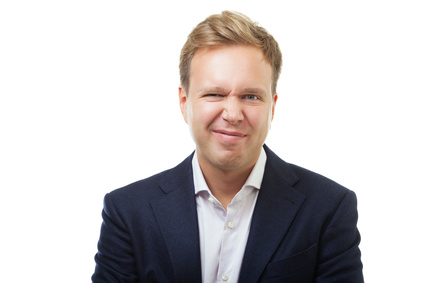
Every once in a while I come across something in the insurance industry that doesn’t make sense. Take wholesalers and in-house programs, for example. These two things are typically not compatible for a number of reasons. Yet these days wholesalers with in-house programs are so common that the terms “wholesaler” and “Managing General Underwriter (MGU)” are used virtually interchangeably.
It’s a concerning trend and one that is worth exploring. So let’s dig in.
What’s the difference between a wholesaler and an MGU?
Wholesalers access insurance programs on behalf of their retail clients. Their core responsibilities are to:
- Identify applicable exposures,
- Provide unbiased coverage options for their retail clients’ consideration, and
- Place the coverage properly.
On the other hand, an MGU’s job is to provide for its wholesale and/or retail distributors an insurance product that is differentiated from other available products in some meaningful way and generally adds value. As my business partner pointed out in his recent article “Insurance Programs: How To Tell When A Wholesaler Is Faking One”, the term “program” is used pretty loosely these days – something that is particularly true when it comes to healthcare professional liability. Still, the development and maintenance of insurance programs by MGU’s seems to be a viable business model for those organizations and I am sure there are plenty of examples of MGU insurance programs out there that actually add some value.
Why not do both?
So what’s the problem with a wholesaler also acting as an MGU? Simple: the inherent conflict of interest resulting from operating in both capacities just makes this a bad idea for a number of reasons.
Why would underwriters care?
Consider the view from the carrier side. Unless a wholesaler with an in-house program is focusing that product on a truly underserved segment within their area of focus, they will be competing directly with their carrier partners. As if that isn’t bad enough, different commission structures exacerbate the situation.
Healthcare professional liability placements by a wholesaler with its traditional carrier partners will typically generate up to a 20% gross commission. An in-house program, on the other hand, pays a gross commission of up to 25% and sometimes more. Assuming the commission paid to the retailer is the same (which it often is), here’s what can happen: when a wholesaler places business in an in-house program they can get up to double the revenue they would get from a traditional placement!
In a normal market this is going to rub traditional carrier partners the wrong way. In a soft market such as the one we are dealing with in the healthcare professional liability market today, where hit ratios and premium generation are already at cyclical lows, this can have a serious and negative impact on a wholesaler’s relationship with its traditional carrier partners.
Why would retail agents care?
I’ll let the obvious answers to a couple simple questions do the talking here:
- How can a retail agent ever be sure they are being given the best and unbiased coverage options when the wholesaler is financially incented to place business in their in-house program?
- How can a retail agent be sure damage to a wholesaler’s carrier relationships resulting from the existence of in-house programs has not negatively impacted the terms and conditions of other coverage options when the wholesaler does provide them?
Business 101
Does the existence on an in-house program in a wholesale shop mean that something unethical is taking place? No, it doesn’t. But basic business savvy tells us that conflicts of interest should be avoided whenever possible – if for no other reason than they create the conditions for unethical behavior to take place.
Make a living the old-fashioned way.
As a business owner I am all for generating additional revenue. But if wholesalers are not satisfied with the revenue their core business is generating, then perhaps they should focus first on being a better wholesaler.
Ethos Insights:
- Wholesalers and in-house programs are typically not compatible.
- Few in-house programs seem to provide anything new or add any real value.
- Ethos is exclusively focused on the U.S. Healthcare Industry and strives daily to be the best wholesaler it can be.
As the Co-Founder and Chief Production Officer of Ethos Insurance Partners, David, with decades of experience in the insurance industry, has a rich background starting in reinsurance brokerage and later specializing in healthcare professional liability placements. Co-founding Ethos Insurance Partners in 2004, David possesses a comprehensive understanding of professional liability exposure in the healthcare industry and is well-versed in the products and capabilities of carrier partners. His role at Ethos involves assisting production support staff efficiently solving healthcare professional liability-related problems for retail customers. Personally, David finds joy in building, from home projects to business ventures, and enjoys sharing good meals and wines with friends and family. He looks forward to continuing to build Ethos through collaboration and serving retail customers.